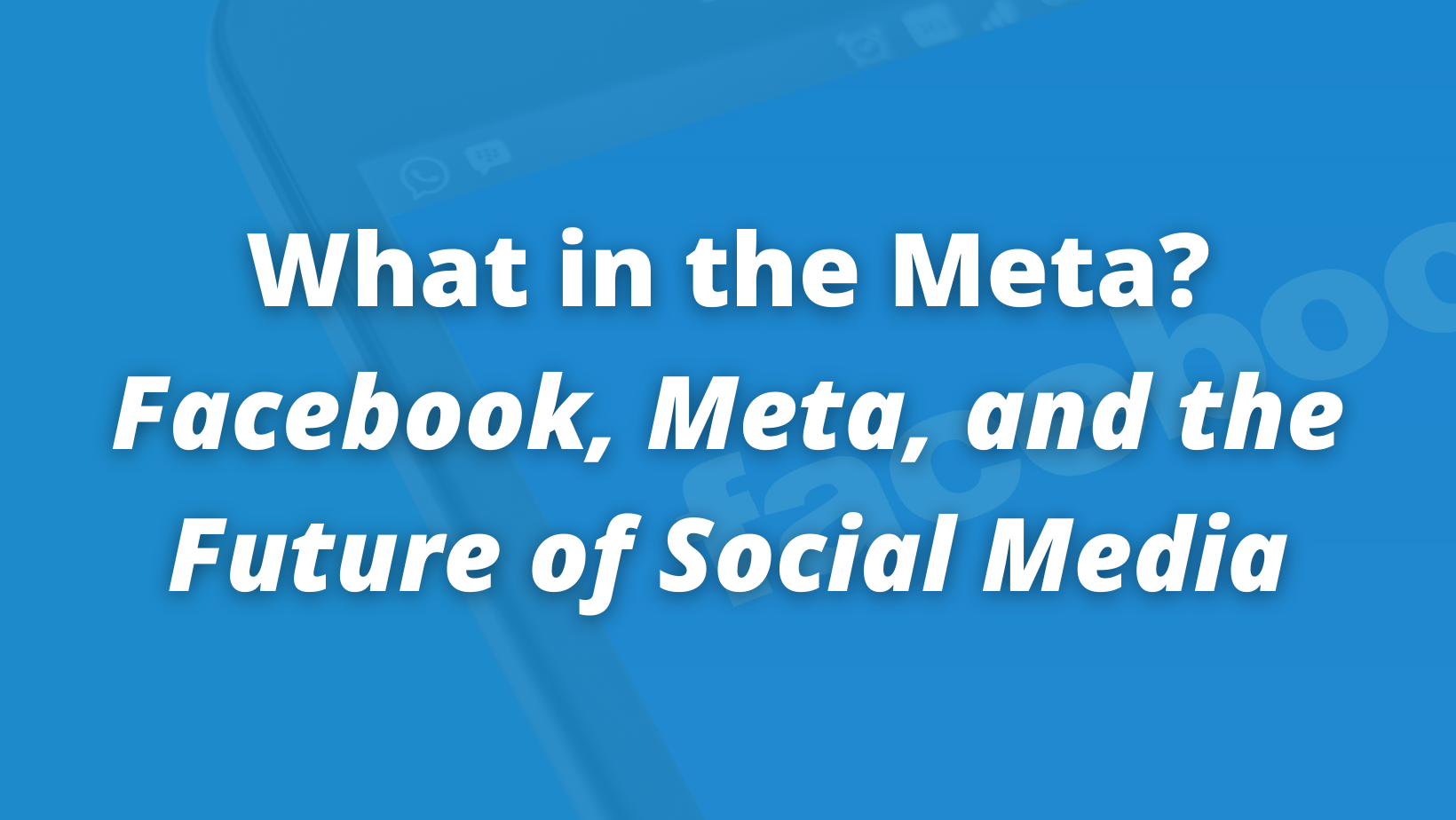Woah. Facebook just went Meta.
If you’ve paid attention to the news recently, you may have heard about Facebook’s rebranding. Let us clarify this right off the bat, the parent company that oversees Facebook, Instagram, WhatsApp, and Oculus has rebranded itself as “Meta”, not Facebook the website/app itself. Do not worry, you will not be posting any updates on Meta.
This rebrand came after Facebook received increasing pressure particularly from whistleblower and former Facebook data scientist, Frances Haugan, who filed complaints that the social media platform’s empire knowingly amplifies hates, misinformation, and political unrest.
Then, Facebook and WhatsApp’s infamous day-long shutdown increased speculation that the company was scrubbing unscrupulous records. Facebook, of course, denies this.
So, what the heck is going on and what does that mean for those of us in marketing and advertising?
Facebook’s Algorithm.
In a previous blog, I wrote in-depth on Instagram’s algorithm. If you wish, you can read it here. Suffice to say, it’s no secret that social media platforms do everything they can to keep consumers on their apps and websites. It’s likely you have seen the research, or perhaps even the documentary The Social Dilemma, that gives details on how these companies operate. Social media gets consumers hooked, keeps them engaged for long periods of time, gets them to come back frequently, and make the company increasing amounts of money. Your time is up for sale and a slot machine of entertainment is at your fingertips. Unfortunately, as much as we know about media, the efficacy of such practices and their effect has only recently begun to be explored.
This is where Frances Haugen’s testimony comes in. Appearing before the US Senate Congress Committee on October 5, 2021, she uncovered a number of issues with Facebook’s dealings, having previously leaked files of the companies findings. You can read her article on the subject in a Wall Street Journal article, or, if video is more your speed (looking at you Gen Z), you can watch her 60 Minutes interview. The summary is this – that there are two competing factors at work: what’s good for Facebook and what’s good for their consumers. Haugan found the data showed that Facebook often amplifies hate, enables misinformation, creates division, and aids in political unrest. Studies also found that Instagram is harmful to teenage girls. This is because, generally speaking, negative and divisive content performs better than the opposite. And because this is the case, the algorithm works to enable such content. Rather than protecting its consumers, Facebook promotes the thing that will get the most clicks.
At The Post and Courier, we’ve found this troubling statistic to be true. When boosting stories from the paper, we noticed a trend: crime pieces perform better than anything else. In fact, each week our best performing stories are almost universally about crime or policing. It creates an ethical dilemma for a company. Do what’s best for the consumer or do what’s best for the bottom line? And where do you draw the line? Can we create a more gracious, optimistic, and equitable society, or do we work to sow division by promoting what audiences want to click on? Questions worth pondering for any advertiser.
On the Metaverse
One last thing of note. Facebook also introduced something called the “Metaverse”. You can watch the entire 75 minute video on their website if you like, but believe me when I say it’s straight out of Aldous Huxley’s Brave New World, or for the modern reader something out of a film like Wall-E. Facebook’s parent company, now named Meta, is beginning to focus on the future of the internet in Virtually Reality (VR) format. Instead of going into the office or talking through a 2D screen on Zoom, they are working towards a future where people will hold meetings in a 3D VR world. Meta announced the advent of this Metaverse, an augmented reality experience where you can also meet friends, play games, watch movies, and generally spend time in this virtual world.
Mark Zuckerberg’s postings got immediately panned with comments like “this is an episode of Black Mirror I swear.” But, interestingly, Adam Mosseri, the head of Instagram, got much more favorable comments on his less aggressive video post. Regardless, it seems as though the future is here, however long it takes to actually become fully realized. We certainly don’t know the implications of this new interweb, but it’s best to start preparing now.
Get ready, it’s a scary world out there.


